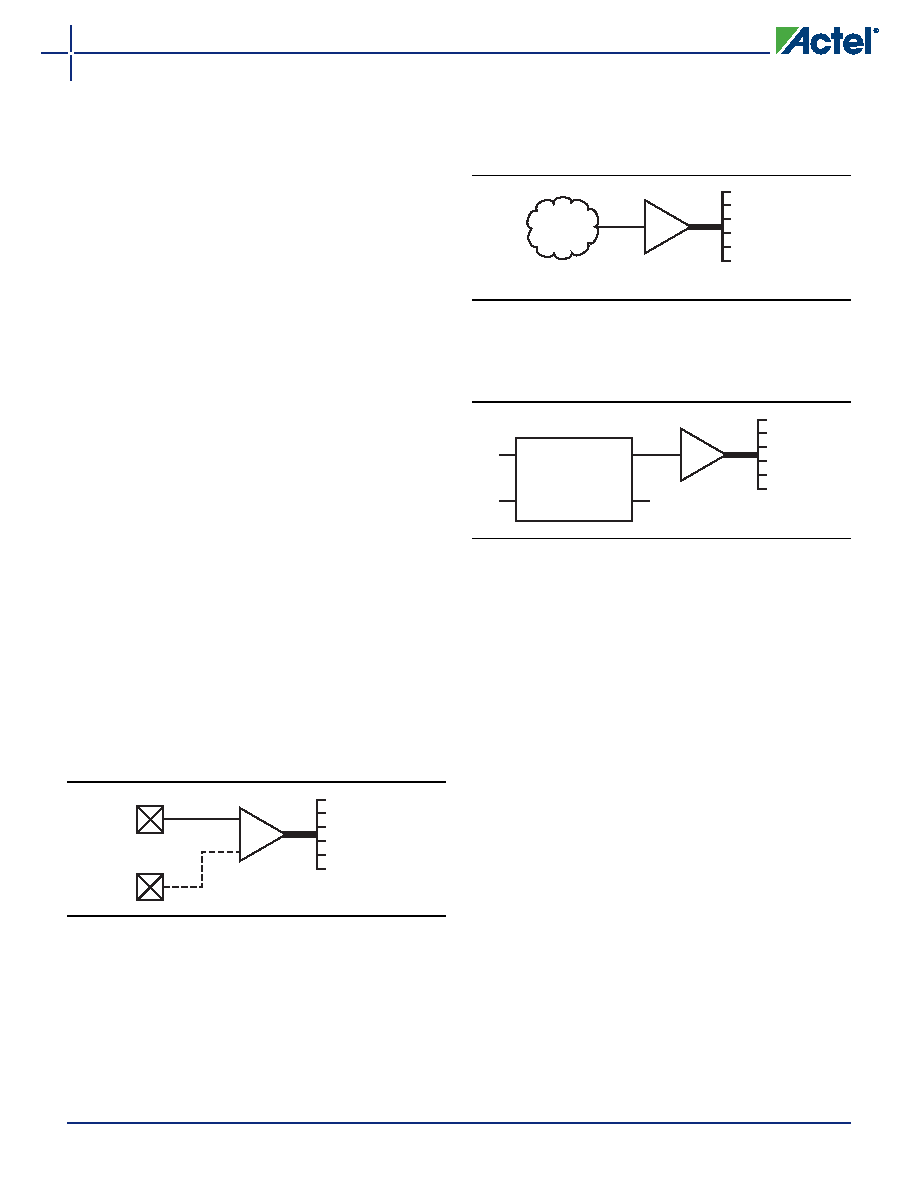- 您現(xiàn)在的位置:買賣IC網(wǎng) > PDF目錄295121 > AX250-1FGG256 FPGA, 2816 CLBS, 154000 GATES, 763 MHz, PBGA256 PDF資料下載
參數(shù)資料
| 型號: | AX250-1FGG256 |
| 元件分類: | FPGA |
| 英文描述: | FPGA, 2816 CLBS, 154000 GATES, 763 MHz, PBGA256 |
| 封裝: | 1 MM PITCH, FBGA-256 |
| 文件頁數(shù): | 204/230頁 |
| 文件大?。?/td> | 6485K |
| 代理商: | AX250-1FGG256 |
第1頁第2頁第3頁第4頁第5頁第6頁第7頁第8頁第9頁第10頁第11頁第12頁第13頁第14頁第15頁第16頁第17頁第18頁第19頁第20頁第21頁第22頁第23頁第24頁第25頁第26頁第27頁第28頁第29頁第30頁第31頁第32頁第33頁第34頁第35頁第36頁第37頁第38頁第39頁第40頁第41頁第42頁第43頁第44頁第45頁第46頁第47頁第48頁第49頁第50頁第51頁第52頁第53頁第54頁第55頁第56頁第57頁第58頁第59頁第60頁第61頁第62頁第63頁第64頁第65頁第66頁第67頁第68頁第69頁第70頁第71頁第72頁第73頁第74頁第75頁第76頁第77頁第78頁第79頁第80頁第81頁第82頁第83頁第84頁第85頁第86頁第87頁第88頁第89頁第90頁第91頁第92頁第93頁第94頁第95頁第96頁第97頁第98頁第99頁第100頁第101頁第102頁第103頁第104頁第105頁第106頁第107頁第108頁第109頁第110頁第111頁第112頁第113頁第114頁第115頁第116頁第117頁第118頁第119頁第120頁第121頁第122頁第123頁第124頁第125頁第126頁第127頁第128頁第129頁第130頁第131頁第132頁第133頁第134頁第135頁第136頁第137頁第138頁第139頁第140頁第141頁第142頁第143頁第144頁第145頁第146頁第147頁第148頁第149頁第150頁第151頁第152頁第153頁第154頁第155頁第156頁第157頁第158頁第159頁第160頁第161頁第162頁第163頁第164頁第165頁第166頁第167頁第168頁第169頁第170頁第171頁第172頁第173頁第174頁第175頁第176頁第177頁第178頁第179頁第180頁第181頁第182頁第183頁第184頁第185頁第186頁第187頁第188頁第189頁第190頁第191頁第192頁第193頁第194頁第195頁第196頁第197頁第198頁第199頁第200頁第201頁第202頁第203頁當前第204頁第205頁第206頁第207頁第208頁第209頁第210頁第211頁第212頁第213頁第214頁第215頁第216頁第217頁第218頁第219頁第220頁第221頁第222頁第223頁第224頁第225頁第226頁第227頁第228頁第229頁第230頁

Axcelerator Family FPGAs
v2.8
2-61
The HM and CM modules can select between:
The HCLK or CLK source respectively
A local signal routed on generic routing resources
This
allows
each
core
tile
to
have
eight
clocks
independent of the other core tiles in the device.
Both HCLK and CLK are segmentable, meaning that
individual branches of the global resource can be used
independently.
Like the HM and CM modules, the HD and RD modules
can select between:
The HCLK or CLK source from the HM or CM
module respectively
A local signal routed on generic routing resources
The AX architecture is capable of supporting a large
number of local clocks – 24 segments per HCLK driving
north-south and 28 segments per CLK driving east-west
per core tile.
Actel's
Designer
software’s
place-and-route
takes
advantage of the segmented clock structure found in
Axcelerator devices by turning off any unused clock
segments. This results in not only better performance but
also lower power consumption.
Global Resource Access Macros
Global resources can be driven by one of three sources:
external pad(s), an internal net, or the output of a PLL.
These connections can be made by using one of three
types of macros: CLKBUF, CLKINT, and PLLCLK.
CLKBUF and HCLKBUF
CLKBUF (HCLKBUF) is used to drive a CLK (HCLK) from
external pads. These macros can be used either
generically or with the specific I/O standard desired
(e.g.
CLKBUF_LVCMOS25,
HCLKBUF_LVDS,
etc.)
(Figure 2-42).
Package pins CLKEP and CLKEN are associated with
CLKE; package pins HCLKAP and HCLKAN are
associated with HCLKA, etc.
Note that when CLKBUF (HCLKBUF) is used with a
single-ended I/O standard, it must be tied to the P-
pad of the CLK (HCLK) package pin. In this case, the
CLK (HCLK) N-pad can be used for user signals.
CLKINT and HCLKINT
CLKINT (HCLKINT) is used to access the CLK (HCLK)
resource internally from the user signals (Figure 2-43).
PLLRCLK and PLLHCLK
PLLRCLK (PLLHCLK) is used to drive global resource
CLK (HCLK) from a PLL (Figure 2-44).
Using Global Resources with PLLs
Each global resource has an associated PLL at its root. For
example, PLLA can drive HCLKA, PLLE can drive CLKE, etc.
In addition, each clock pin of the package can be used to
drive either its associated global resource or PLL. For
example, package pins CLKEP and CLKEN can drive either
the RefCLK input of PLLE or CLKE.
There are two macros required when interfacing the
embedded PLLs with the global resources: PLLINT and PLLOUT.
PLLINT
This macro is used to drive the RefCLK input of the PLL
internally from user signals.
PLLOUT
This macro is used to connect either the CLK1 or CLK2
output of a PLL to the regular routing network (Figure 2-
Figure 2-42 CLKBUF and HCLKBUF
P
N
CLKBUF
HCLKBUF
Clock
Network
Figure 2-43 CLKINT and HCLKINT
Figure 2-44 PLLRCLK and PLLHCLK
CLKINT
HCLKINT
Clock
Network
Logic
PLLRCLK
PLLHCLK
Clock
Network
CLK1
CLK2
FB
RefCLK
PLL
相關(guān)PDF資料 |
PDF描述 |
|---|---|
| AX250-1FGG256I | FPGA, 2816 CLBS, 154000 GATES, 763 MHz, PBGA256 |
| AX250-1FGG256M | FPGA, 2816 CLBS, 154000 GATES, 763 MHz, PBGA256 |
| AX250-1FGG484 | FPGA, 2816 CLBS, 154000 GATES, 763 MHz, PBGA484 |
| AX250-1FGG484I | FPGA, 2816 CLBS, 154000 GATES, 763 MHz, PBGA484 |
| AX250-1FGG484M | FPGA, 2816 CLBS, 154000 GATES, 763 MHz, PBGA484 |
相關(guān)代理商/技術(shù)參數(shù) |
參數(shù)描述 |
|---|---|
| AX250-1FGG256I | 功能描述:IC FPGA AXCELERATOR 250K 256FBGA RoHS:是 類別:集成電路 (IC) >> 嵌入式 - FPGA(現(xiàn)場可編程門陣列) 系列:Axcelerator 標準包裝:40 系列:SX-A LAB/CLB數(shù):6036 邏輯元件/單元數(shù):- RAM 位總計:- 輸入/輸出數(shù):360 門數(shù):108000 電源電壓:2.25 V ~ 5.25 V 安裝類型:表面貼裝 工作溫度:0°C ~ 70°C 封裝/外殼:484-BGA 供應商設備封裝:484-FPBGA(27X27) |
| AX250-1FGG256M | 制造商:Microsemi Corporation 功能描述:FPGA Axcelerator Family 154K Gates 2816 Cells 763MHz 0.15um Technology 1.5V 256-Pin FBGA 制造商:Microsemi Corporation 功能描述:FPGA AXCELERATOR 154K GATES 2816 CELLS 763MHZ 0.15UM 1.5V 25 - Trays 制造商:Microsemi SOC Products Group 功能描述:FPGA AXCELERATOR 154K GATES 2816 CELLS 763MHZ 0.15UM 1.5V 25 - Trays |
| AX250-1FGG484 | 功能描述:IC FPGA AXCELERATOR 250K 484FBGA RoHS:是 類別:集成電路 (IC) >> 嵌入式 - FPGA(現(xiàn)場可編程門陣列) 系列:Axcelerator 標準包裝:40 系列:SX-A LAB/CLB數(shù):6036 邏輯元件/單元數(shù):- RAM 位總計:- 輸入/輸出數(shù):360 門數(shù):108000 電源電壓:2.25 V ~ 5.25 V 安裝類型:表面貼裝 工作溫度:0°C ~ 70°C 封裝/外殼:484-BGA 供應商設備封裝:484-FPBGA(27X27) |
| AX250-1FGG484I | 功能描述:IC FPGA AXCELERATOR 250K 484FBGA RoHS:是 類別:集成電路 (IC) >> 嵌入式 - FPGA(現(xiàn)場可編程門陣列) 系列:Axcelerator 產(chǎn)品培訓模塊:Three Reasons to Use FPGA's in Industrial Designs Cyclone IV FPGA Family Overview 特色產(chǎn)品:Cyclone? IV FPGAs 標準包裝:60 系列:CYCLONE® IV GX LAB/CLB數(shù):9360 邏輯元件/單元數(shù):149760 RAM 位總計:6635520 輸入/輸出數(shù):270 門數(shù):- 電源電壓:1.16 V ~ 1.24 V 安裝類型:表面貼裝 工作溫度:0°C ~ 85°C 封裝/外殼:484-BGA 供應商設備封裝:484-FBGA(23x23) |
| AX250-1FGG484M | 制造商:Microsemi Corporation 功能描述:FPGA AXCELERATOR 154K GATES 2816 CELLS 763MHZ 0.15UM 1.5V 48 - Trays 制造商:Microsemi Corporation 功能描述:IC FPGA 248 I/O 484FBGA 制造商:Microsemi Corporation 功能描述:IC FPGA AXCELERATOR 250K 484FBGA |
發(fā)布緊急采購,3分鐘左右您將得到回復。